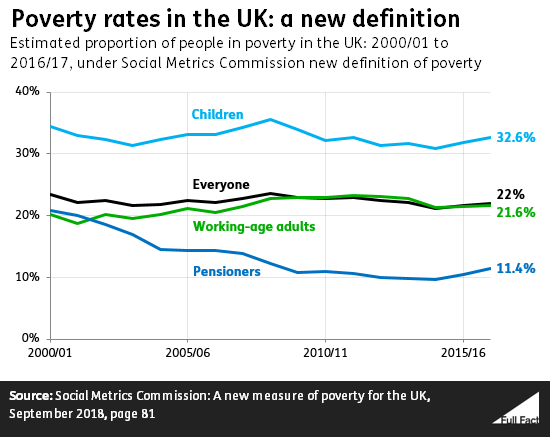Click on the image to see a bigger version.
Quote of the Day
”The UK remains in toxic stasis, presided over by a necrotic government, but now with a gathering sense that much worse could be in the post.”
- Marina Hyde writing in the Guardian
The significance of the WhatsApp hack
This morning’s Observer column:
When Edward Snowden broke cover in the summer of 2013 and a team of Guardian journalists met up with him in his Hong Kong hotel, he insisted not only that they switch off their mobile phones but also that they put the devices into a fridge. This precaution suggested that Snowden had some special insight into the hacking powers of the NSA, specifically that the agency had developed techniques for covertly taking over a mobile phone and using it as a tracking and recording device. To anyone familiar with the capabilities of agencies such as the NSA or GCHQ, this seemed plausible. And in fact, some years later, such capabilities were explicitly deemed necessary and permissible (as “equipment interference”) in the Investigatory Powers Act 2016.
When Snowden was talking to the reporters in Hong Kong, WhatsApp was a four-year-old startup with an honest business model (people paid for the app), about 200m active users and a valuation of $1.5bn. In February 2014, Facebook bought the company for $19bn and everything changed. WhatsApp grew exponentially to its present ubiquity: it has more than 1.5 billion users and has spread like a rash over the entire planet.
Among its attractions is that it offers users effortless end-to-end encryption for their communications, thereby enhancing their privacy…
The green obstruction
Quote of the Day
“Algorithms do not have ethics, moral, values or ideologies, but people do. Questions about the ethics of AI are questions about the ethics of the people who make it and put it to use.”
Sit here to think
So what took the establishment so long to get it?
From today’s Guardian:
Rising inequality in Britain risks putting the country on the same path as the US to become one of the most unequal nations on earth, according to a Nobel-prize winning economist.
Sir Angus Deaton is leading a landmark review of inequality in the UK amid fears that the country is at a tipping point due to a decade of stagnant pay growth for British workers. The Institute for Fiscal Studies thinktank, which is working with Deaton on the study, said the British-born economist would “point to the risk of the UK following the US” which has extreme inequality levels in pay, wealth and health.
Speaking to the Guardian at the launch of the study, he said: “There’s a real question about whether democratic capitalism is working, when it’s only working for part of the population.
It’s only working for some people. This is a rich country, yet a significant proportion of its population (and, more importantly, their children) are living in poverty. (which, among other things, may help to explain the Brexit vote.)
Regulating the tech giants
This from Benedict Evan’s invaluable newsletter, written in response to Chris Hughes’s long NYT OpEd arguing that Facebook should be broken up…
I think there are two sets of issues to consider here. First, when we look at Google, Facebook, Amazon and perhaps Apple, there’s a tendency to conflate concerns about the absolute size and market power of these companies (all of which are of course debatable) with concerns about specific problems: privacy, radicalization and filter bubbles, spread of harmful content, law enforcement access to encrypted messages and so on, all the way down to very micro things like app store curation. Breaking up Facebook by splitting off Instagram and WhatsApp would reduce its market power, but would have no effect at all on rumors spreading on WhatsApp, school bullying on Instagram or abusive content in the newsfeed. In the same way, splitting Youtube apart from Google wouldn’t solve radicalization. So which problem are you trying to solve?
Second, anti-trust theory, on both the diagnosis side and the remedy side, seems to be flummoxed when faced by products that are free or as cheap as possible, and that do not rely on familiar kinds of restrictive practices (the tying of Standard Oil) for their market power. The US in particular has tended to focus exclusively on price, where the EU has looked much more at competition, but neither has a good account of what exactly is wrong with Amazon (if anything – and of course it is still less than half the size of Walmart in the USA), or indeed with Facebook. Neither is there a robust theory of what, specifically, to do about it. ‘Break them up’ seems to come more from familiarity than analysis: it’s not clear how much real effect splitting off IG and WA would have on the market power of the core newsfeed, and Amazon’s retail business doesn’t have anything to split off (and no, AWS isn’t subsidizing it). We saw the same thing in Elizabeth Warren’s idea that platform owners can’t be on their own platform – which would actually mean that Google would be banned from making Google Maps for Android. So, we’ve got to the point that a lot of people want to do something, but not really, much further.
This is a good summary of why the regulation issue is so perplexing. Our difficulties include the fact that we don’t have an analytical framework yet for (i) analysing the kinds of power wielded by the platforms; (ii) categorising the societal harms which the tech giants might be inflicting; or (iii) understanding how our traditional toolset for dealing with corporate power (competition law, antitrust, etc.) needs to be updated for the contemporary challenges posed by the companies.
Just after I’d read the newsletter, the next item in my inbox contained a link to a Pew survey which revealed the colossal numbers of smartphone users across the world who think they are accessing the Internet when they’re actually just using Facebook or WhatsApp. Interestingly, it’s mostly those who have some experience of hooking up to the Internet via a desktop PC who know that there’s actually a real Internet out there. But if your first experience of Internet connectivity is via a smartphone running the Facebook app (which means that your data may be free), then as far as you are concerned, Facebook is the Internet.
So Facebook has, effectively, blotted out the open Internet for a large segment of humanity. That’s also a new kind of power for which we don’t have — at the moment — a category. Just as the so-called Right to be Forgotten* recognises that Google has the power to render someone invisible. After all, in a networked world, if the dominant search engine doesn’t find you, then effectively you have ceased to exist.
- It’s not a right to be forgotten, merely a right not to be found by Google’s search engine. The complained-of information remains on the website where it was originally published.
How Microsoft reinvented itself
This morning’s Observer column:
It may have escaped your attention, but Microsoft recently became the third company in history to reach a valuation of one trillion dollars. To which the standard reaction, I have discovered, is: “Eh? Microsoft!!!” Wasn’t that the boring old monolith fixated on desktop products and operating systems that missed out on the smartphone revolution? The company that Bill Gates used to run before he decided to devote himself full-time to giving his money away? The company whose Exchange Server is the bane of every office-worker’s daily grind? The ruthless monopolist who missed the world wide web and then set out to exterminate the one company – Netscape – that hadn’t?
Yes, that Microsoft. Given the company’s history, this is surely the greatest comeback since Lazarus. But with one difference: where Lazarus’s resurrection was (according to the New Testament) instantaneous, Microsoft’s took longer. How this happened is a story that will keep MBA students occupied for decades, but with the benefit of hindsight, we can now see that it has three main strands…
The truth about Ansel Adams
There’s an interesting interview of the photographer Stephen Shore by another photographer, Alec Soth, in today’s Financial Times. It contains an interesting story about Shore’s first encounter with Ansel Adams:
One of my closest friends at the time was a curator named Weston Naef, and he had a loft in SoHo. He invited me to dinner one night with Ansel Adams. This is in maybe the mid-1970s. Ansel had been, in fact, very helpful to me without my knowing it. Uncommon Places [Shore’s first book] came about because I had a show in ’76 at MoMa and he saw it and came back with his editor at New York Graphic Society, named Tim Hill, and suggested they do a book. That’s how Uncommon Places happened.
Ansel had been drinking before I got there, and while I was there he had six glasses of straight vodka — a prodigious amount of vodka — and at one point he said, “I had a creative hot streak in the ’40s, and since then I’ve been pot-boiling.” And I thought, when I’m 85 that’s not how I want to look back at my life.
Later in the conversation he asks Adams how he managed to do as much work as he had in the 1940s when he had five children. The reply: “I got separated”. I’m reminded of Cyril Connolly’s listing of “the pram in the hall” as one of his Enemies of Promise.





